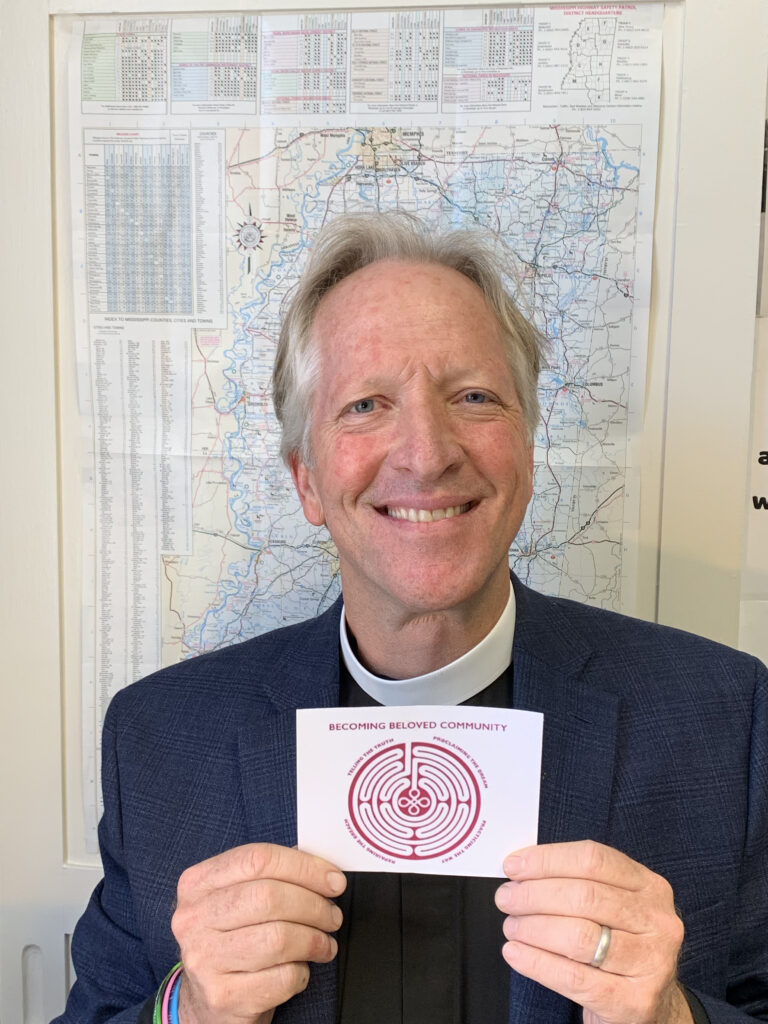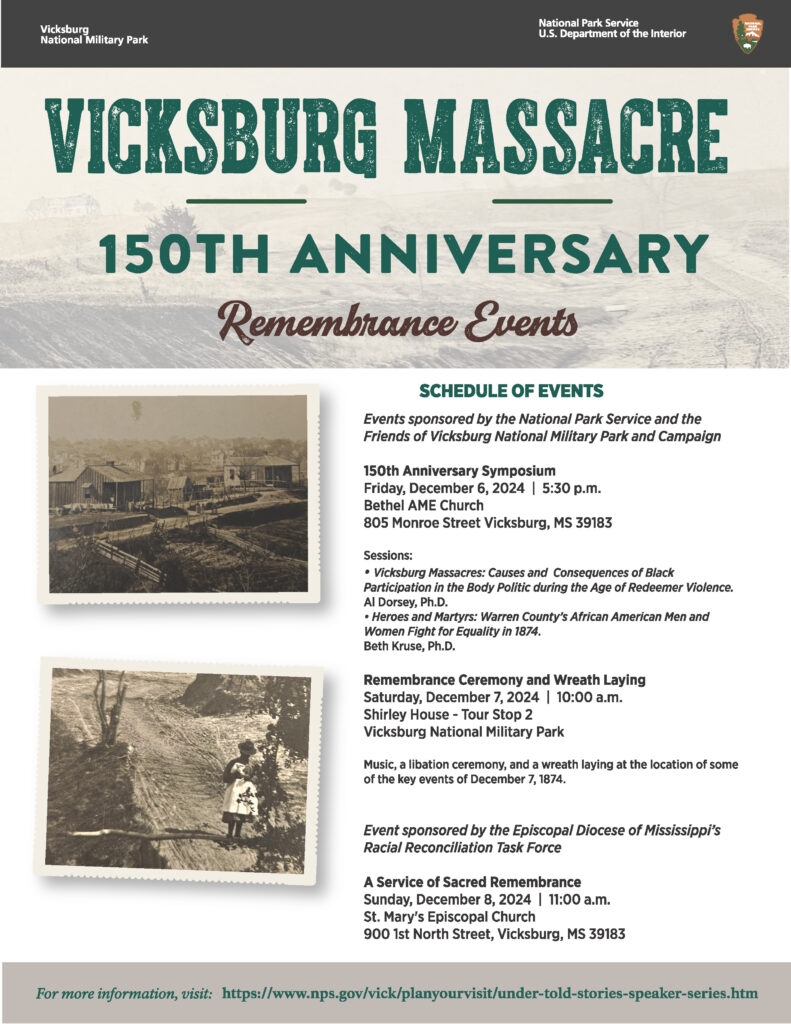“Telling the Truth is Fascinating”
A Q&A on Beloved Community with the Rev. Andy Andrews
The Reverend Andy Andrews serves as Diocesan Missioner for Beloved Community and Congregational Vitality, a position with two separate but related responsibilities. The goal associated with the second of those titles—congregational vitality—is fairly self-explanatory. Beloved Community, which many rightly associate with racial reconciliation initiatives, actually has broader goals than some may realize. The initiative trains discussion leaders, puts on a variety of workshops like Sacred Ground, and generally promotes healing and justice making. TME editor Wil Oakes recently sat down to talk with Andrews about his work and learn more about Beloved Community in the diocese. This transcript has been edited for length and clarity.
 Thanks for taking the time to talk, Andy. In case any of our readers don’t know you, tell us a little about yourself and your life in the church.
Thanks for taking the time to talk, Andy. In case any of our readers don’t know you, tell us a little about yourself and your life in the church.
I was born and raised in Greenville, baptized and confirmed at St. James’, Greenville. Early on, I had some pretty strong experiences of God that seemed otherworldly, but they were beautiful and powerful for me, and I’m so glad I had amazing clergy leaders and also lay leaders that helped kind of raise me up to help process those experiences of God. If I didn’t have the Episcopal Church, I don’t know where I would be theologically or in my relationship with God. I’m so grateful I’ve had our church to help me be a human being in—rarely given any answers. I know I’m not supposed to be a cookie cutter Christian. I’m supposed to be who God made Andy to be, and the Episcopal Church has really helped me do that with all of its resources and all of its deep thinking.
So, Andy, tell me what it is you do around here—what is Beloved Community?
Beloved Community is a movement that’s been happening in the Episcopal Church broader since the 1970s to try to articulate how the church wants to engage in healing and justice making, especially when it comes to racism. It’s expanded. Beloved Community means shalom, it means the Kingdom of God, it means welcome. So just a way for the church to be opening and welcoming to everybody.
In Mississippi, there’s four spiritual practices that we’ve been given to help become Beloved Community: that’s telling the truth, proclaiming the dream, repairing the breach, and practicing the way of love. Everybody’s in a different spot, doing different things. I’ve met a number of people all over our diocese, leaders that are really doing interesting things, like looking into the founding of their church and trying to name who built the church and where that economy came from, especially around enslaved labor. Other people are trying to learn the stories of people acting courageously during the civil rights movement, Freedom Summer. Others are just trying to pay attention to how they welcome folks and asking the questions, you know: “our church is so good and so special, why is it still maybe a homogenous gathering?”
I’m committed to believing that that the future is multicultural. I think the Episcopal Church is positioned for a bright, bright future, because we do proclaim the image of God in everyone, and our doors are red, but they are wide open, and they swing on the hinges of hospitality.
None of those practices—even something as simple sounding as “telling the truth”—is easy, I’m sure. What difficulties do you face in this work?
Telling the truth is fascinating. To gather a group, a diverse group, and put guidelines and kind of a framework around how we’re going to engage in this sensitive conversation. You pray in the space, and then allow that conversation to happen, always reflecting back on your ground rules and the framework you’ve set up. It’s beautiful to watch how, at first, everybody’s tense and uptight, because rarely do we get together to talk about things of the past that that are awkward and emotionally loaded and sometimes terrible to talk about. But as soon as the conversation begins to happen, and the ice begins to break, and some walls begin to tear down.
I didn’t know so much of Mississippi’s history—the bad, but also the good—until after college, until I started doing my own kind of homework, and so now I’m fascinated to try to learn as much as possible. I think it helps me become a fuller person, a fuller Mississippian. I see light everywhere. There’s so many stars all over Mississippi, of people already doing this great gospel-centered work and loving neighbor, because that’s all it is really about, is relationships.
When you talk to someone about one of these events and they come back at you with, “I don’t feel comfortable doing that. I don’t want to be made to feel uncomfortable. I don’t want to be made to feel guilty. I don’t want to, you know, to confront these things.” What is your pitch to those people?
Shame and blame aren’t the motivators, it doesn’t seem, that the gospel calls for. We all have a capacity in our hearts that’s still untapped so I can’t help but think that all of us still haven’t fallen in love with everybody we’re going to love, and we haven’t met everybody who is going to love us. So just the capacity there is so exciting. It’s all about curiosity. It’s about learning. It’s about discovering. Now, when I go back and I read history, and I know it’s connected with white males, I can’t help but feel a twinge of guilt and shame and blame because the acts might have been horrible. One thing we do when we go into these conversations is observe some ground rules: no fixing, no shaming, no blaming yourself or others. So we kind of have that as a rule where, when we’re talking about ourselves, we’re trying to discover something about ourselves.
When I talk about difficult things, they can get emotive. They can get heightened. It becomes a debate. The church is trying to train us to be in dialog, be in conversation. The root word of conversation is also the root word of conversion, and so having a good, healthy conversation converts the people who are participating.
I like that approach. We’re here to sort of illuminate the truth, and, by doing so, I guess, set ourselves up for that conversion, right? It’s not that we’re here to magically fix huge problems right here in the room. What’s next?
I’m convinced that God’s just getting started with us, that maybe this is our new next chapter. I’m thrilled with the leadership that Bishop Dorothy Wells is bringing, and the energy she’s stirring up and the relationships she’s already establishing.
This is also fun work. I can’t tell you how many friends I’ve met that I just didn’t know. Just by trying to ask questions and trying to learn and discover. I’m also more hopeful, even though the news is really scary and difficult out there, to hear people’s personal stories and how they’re being Christians in their own context, and how they’re making these connections, and how they’re bringing liberation and new life is inspiring. You don’t get that on the news. You only get that through personal connections. And so I’m much more hopeful than when I began this inaugural position two years ago. I’m seeing so many people and so many beautiful churches doing, doing the right thing, and the generous thing and the loving thing. That’s exciting. That’s exciting.
It’s good, long, slow work. And you know, we’re just riding on the coattails of so many great people, Bishop Allin, both Bishop Grays, Bishop Marble, Bishop Seage, Anita George, the racial reconciliation task force that used to meet in the 80s, the citizens for concern that met in the 70s. This has all just been a great movement that I know I get to be the loudest cheerleader for at this moment.
